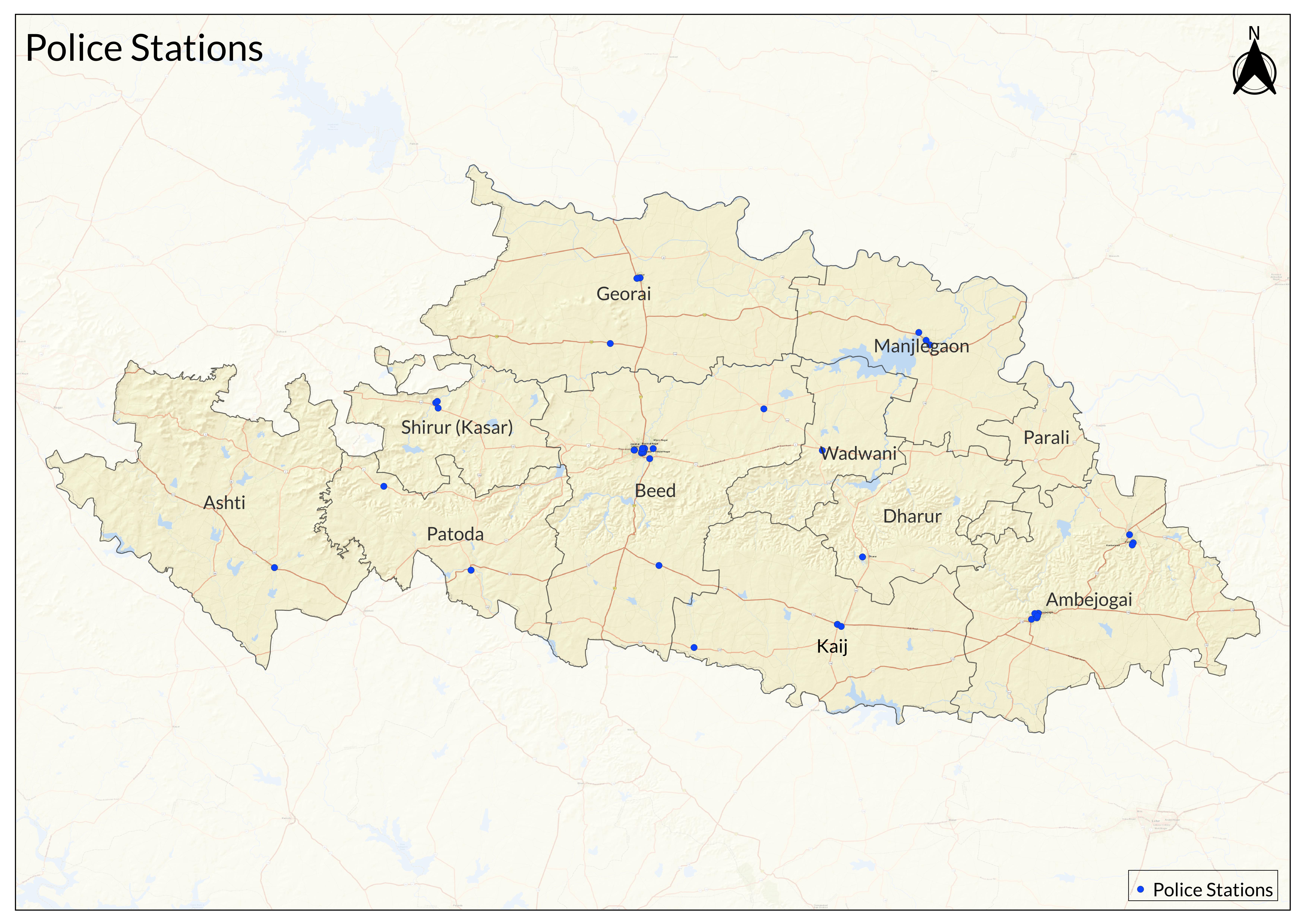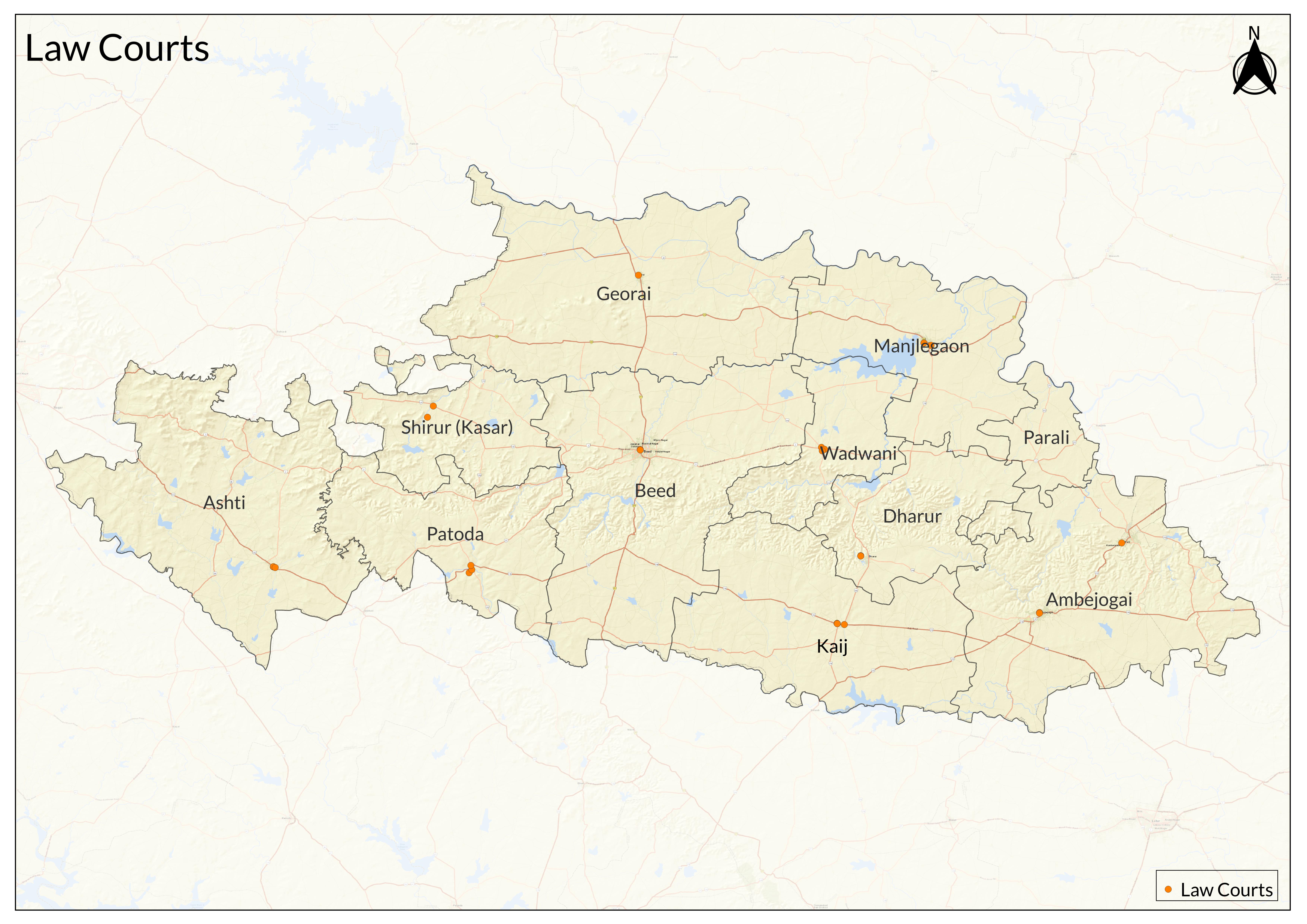Contents
- Graphs
- Criminal Cases
- A. Cognizable Crimes under the Indian Penal Code (IPC)
- B. Select Offenses affecting the Human Body
- C. Select Offenses against Property
- D. Select Offenses against Public Tranquility
- E. Select Offenses relating to Documents and Property Marks
- F. Select Miscellaneous Crimes under the IPC
- G. Cognizable Crimes under Special and Local Laws (SLL)
- H. Select Offenses under Special and Local Laws (SLL)
- I. Crimes against Women
- J. Select Cases of Crimes against Women
- K. Cyber Crime
- L. Select Cases of Cyber Crime
- M. Cases of Fraud
- N. Reported Crimes against Women and Children
- Police Infrastructure and Workforce
- A. Police Infrastructure
- B. Police Officers and Employees
- Judicial System
- A. Number of Functioning Courts
- B. Judge Positions
- C. Cases Resolved
- D. Number of Original Cases Resolved
- E. Number of Appeal Cases Resolved
BEED
Police & Judiciary
Last updated on 5 November 2025. Help us improve the information on this page by clicking on suggest edits or writing to us.
The Beed Police maintain a well-organized network of police stations across the district, ensuring law enforcement coverage in urban, rural, and industrial areas. The district is served by multiple police stations, including Beed City, Beed Gramin, Ambajogai City, Ambajogai Gramin, Kaij, Majalgaon, Parli City, Parli Gramin, Patoda, Peth Beed, Shirur, and Wadwani.
In the Beed district, police officers are commonly addressed as "Saheb," while some people use "Sir" as a formal term. In rural areas, where familiarity plays a role, officers are often called "Mama," "Dada," or "Kaka" if they are known acquaintances or relatives.

Graphs
Criminal Cases
Police Infrastructure and Workforce
Judicial System

Last updated on 5 November 2025. Help us improve the information on this page by clicking on suggest edits or writing to us.